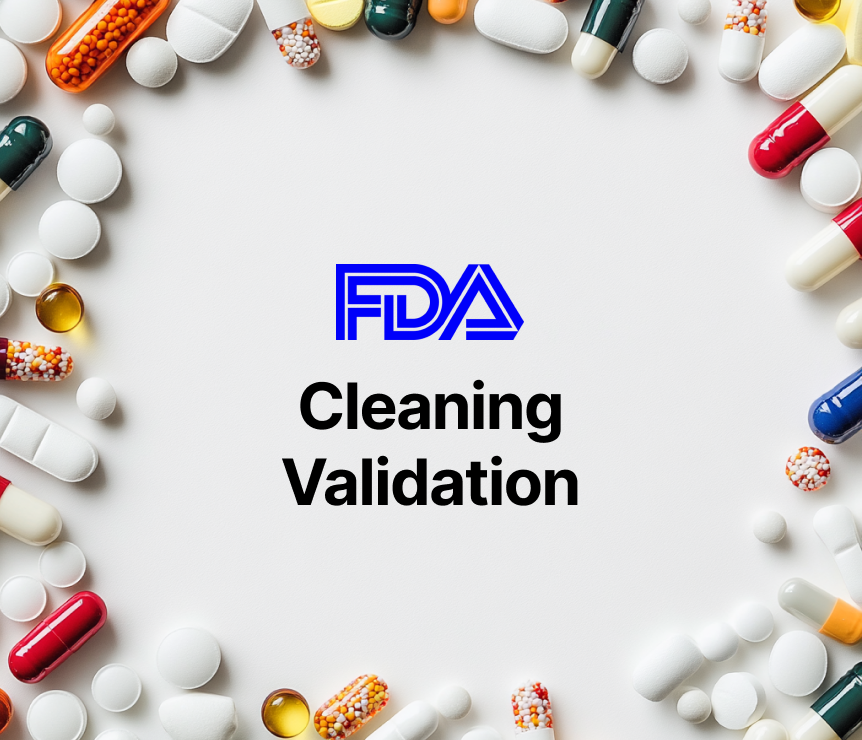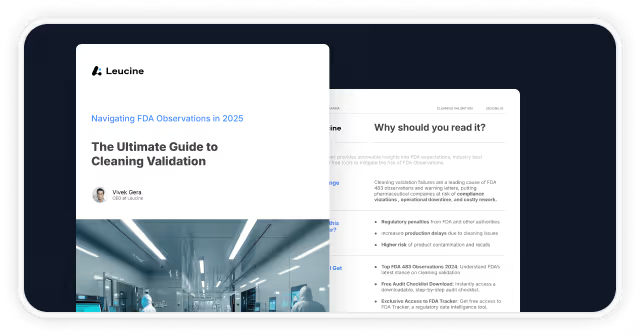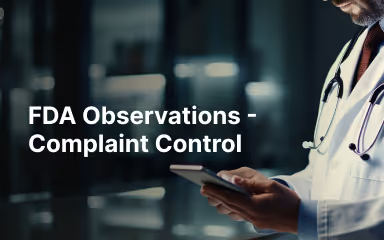Market Complaint in Pharma | A Complete Guide to Compliance

Introduction to Market Complaint Management in Pharma
Market Complaints Management in the pharmaceutical sector ensures safety and compliance by systematically identifying, evaluating, and resolving issues raised by stakeholders. It plays a pivotal role in safeguarding patient health and maintaining regulatory adherence. Through meticulous documentation, cross-functional collaboration, and utilization of advanced technologies, companies aim to swiftly address complaints and glean valuable insights for continuous improvement.
Complaint management is important because it helps retain customers, provides valuable insights for process improvement, and increases overall customer satisfaction. Effective complaint management can turn negative experiences into opportunities for growth and loyalty.
By prioritizing proactive measures and embracing automation, pharmaceutical firms enhance efficiency, credibility, and trust. Effective Market Complaints Management not only ensures product quality but also demonstrates a commitment to patient safety, ultimately benefiting both consumers and stakeholders in the pharmaceutical ecosystem. Leucine’s 10x QMS Market Complaints Management software introduces a new era in quality management. The software consolidates all complaint data and processes into a centralized system, streamlining workflows and improving efficiency by eliminating data silos. It also supports multiple channels for complaint submission, such as online forms and phone calls, making it easier to capture and manage customer complaints. With innovative features like real-time deviation detection, intelligent CAPA workflow automation, and automated impact assessment, it’s the ultimate solution for optimizing processes. Collecting and analyzing customer feedback, including negative feedback, through the system leads to significant improvements in service quality and customer satisfaction. Elevate your standards, enhance efficiency, and ensure compliance seamlessly with an effective complaint management system that demonstrates the company's commitment to quality and customer satisfaction, while enhancing the company's reputation and supporting continuous improvement.
Master Complaint management with FDA 483 insights mapped to the Six-System Inspection Model - only on Leucine. Read now!
What is Market Complaint in Pharma?
A market complaint in pharma refers to any report about a product’s quality defect, adverse reaction, or failure to meet regulatory or customer expectations after it has been distributed. These customer complaints may originate from healthcare professionals, patients, distributors, or regulatory bodies. It is important to systematically record and manage all complaints received from various channels to ensure comprehensive tracking and effective resolution. Addressing a market complaint in pharma is critical to maintaining product safety, regulatory compliance, and customer trust.
Market complaints can include packaging defects, contamination, labeling errors, stability issues, or even product ineffectiveness. Handling complaints related to product safety, especially in the context of herbal medicines and within regulatory frameworks, is essential for effective safety monitoring and pharmacovigilance. Effective handling of these complaints protects the company’s reputation and ensures the company meets legal obligations. A well-executed complaint management process serves as a line of defense for companies aiming to uphold high-quality standards and regulatory compliance.
The complaints manager plays a key role in overseeing the complaint handling process, maintaining records of all complaints, and ensuring that each complaint is resolved in accordance with company procedures. Effective complaint management involves timely investigation, root cause analysis, corrective and preventive actions, and appropriate communication with stakeholders. A structured complaint management process ensures that pharmaceutical companies can identify trends, implement quality improvements, and comply with global regulatory requirements. A detailed investigation and a well-defined investigation process are necessary to accurately resolve each customer complaint and identify root causes. It is also crucial to understand and address the customer's concerns and customer's expectations during the resolution process to restore satisfaction and build trust. Ultimately, an effective complaint management strategy can enhance customer satisfaction, prevent future complaints, and demonstrate a company’s commitment to service quality and customer experience.
Companies regularly analyze feedback and trends from complaints received to address identified issues through process refinement and staff training.
Market Complaints Management Guidelines
Several international regulatory bodies provide strict guidelines for market complaints management to ensure uniformity, transparency, and patient safety:
- ISO 13485: This international standard specifies requirements for a quality management system in the medical device industry, including provisions for complaints handling. Pharmaceutical manufacturers producing medical devices must adhere to these protocols.
- FDA Regulations: The Food and Drug Administration (FDA) provides regulations and guidance documents outlining requirements for complaint handling in the pharmaceutical and medical device industries, such as 21 CFR Part 820 for medical devices and 21 CFR Part 211 for pharmaceuticals. These regulations stress timely reporting, documentation, and corrective action implementation.
- EMA Guidelines: The European Medicines Agency (EMA) issues guidelines and recommendations for complaints handling in the European Union pharmaceutical industry, ensuring compliance with EU regulations. These include patient safety priorities and procedural transparency.
Understanding these guidelines is essential to establish a globally compliant complaint management system and to avoid penalties or market recall incidents. A robust complaint management system also reinforces quality control and supports a company’s broader quality management system goals.
Dive into our Complaint Management Guidelines Resource for a detailed blueprint aligned with FDA, EMA, and ICH expectations. Read now!
Complaint Management Process in Pharma
A robust complaint management process includes the following steps:
- Complaint Receipt and Logging: All product-related complaints must be logged in a structured format and acknowledged promptly. Initial complaint data like batch number, date of complaint, and product details are captured for traceability.
- Triage and Classification: Complaints are categorized based on severity, potential risk to patient safety, and regulatory impact. High-risk or critical complaints may trigger immediate product recalls or regulatory reporting. Complaints that require immediate attention are flagged and prioritized to prevent escalation and ensure customer satisfaction.
- Investigation and Root Cause Analysis: Involves cross-functional teams to determine the underlying root cause using tools like 5 Whys or Fishbone diagrams. Gathering all relevant information is essential to ensure a thorough investigation. A thorough investigation is crucial for effective resolution and preventing recurrence. Thorough documentation of the findings ensures audit readiness and informs the investigation report.
- Corrective and Preventive Actions (CAPA): Based on findings, CAPA is initiated to prevent recurrence and resolve the root issue. CAPA plans include responsibilities, timelines, and metrics for evaluating effectiveness. This stage plays a key role in quality assurance and complaint resolution.
- Communication and Resolution: Clear and documented communication of resolution to the complainant and regulatory bodies as needed. Transparency builds stakeholder trust and satisfies legal requirements. Strong communication skills are essential for addressing customer’s concerns and fostering a positive reputation.
- Trend Analysis and Reporting: Identifying recurring issues and similar complaints to implement systemic improvements and ensure ongoing compliance. Analyzing trends and root causes helps drive continuous improvement. This stage supports continuous improvement and provides valuable insights for complaint handling.
An effective complaint management process is not just about resolving individual complaints—it drives long-term improvements across the manufacturing lifecycle, enhances customer loyalty, and addresses customer dissatisfaction proactively. Adopting a proactive approach to complaint management increases customer satisfaction and helps prevent future issues.
Top FDA Observations in Market Complaints
Market Complaints Management has been one of the major focuses of FDA observations in recent years. Companies often receive Form 483 citations due to inadequate handling, delayed investigations, or insufficient CAPA measures.
<IMAGE_TOP Observation with new design>
Studying past FDA observations reveals common pitfalls such as poor complaint documentation, lack of investigation closure, or failure to analyze complaint trends. These insights help manufacturers implement preventive controls, resolve complaints efficiently, and avoid regulatory penalties.
Read more about Complaint Management Observations
Spot FDA trends on FDA 483 Tracker
FDA tracker is an open source software developed in house by Leucine to track and analyse FDA observations. This helps manufacturers mitigate compliance risks in your pharma processes with our large repository of in-depth insights into the latest regulatory observations. Apart from the 483s and warning letters it includes:

- Detailed analyses of each observation,
- Investigator profiles,
- Facility profiles and much more
These valuable insights can help you better prepare for FDA audits, ensuring you address potential issues proactively. Trend analysis and investigator behavior patterns can be utilized to enhance internal complaint handling, align audit preparedness strategies, and strengthen regulatory affairs functions.
Stay a step ahead of the FDA! Use our free FDA 483 Tracker to spot, analyze, and resolve red flags before they impact compliance. Signup now!
Audit Readiness Checklist
Ensure your facility is always audit-ready with our comprehensive FDA audit readiness checklist. This detailed guide covers critical components such as CAPA management, documentation practices, training programs, and compliance with current Good Manufacturing Practices (cGMP). It provides step-by-step instructions for maintaining compliance, addressing audit observations, and ensuring all aspects of your quality management system are in top shape.
Stay prepared for any audit with detailed checklists for routine inspections, personnel training records, equipment calibration logs, and supplier qualification procedures. Embedding audit readiness into daily operations ensures smoother inspections, fewer observations, and greater regulatory confidence while helping companies improve customer interactions and manage complaint data effectively.
Don’t get caught off guard! Download our Complaint Management Audit Readiness Checklist to keep your pharma operations audit-proof year-round.
Conclusion
Market Complaints Management in the pharmaceutical industry is a vital process ensuring product safety, regulatory compliance, and customer satisfaction. By systematically handling complaints, adhering to regulations, and embracing continuous improvement, companies can uphold their commitment to quality and enhance trust among stakeholders.
A strong complaint management process not only protects patients and end-users but also enhances organizational agility and resilience in the face of regulatory scrutiny. It ensures every market complaint in pharma is treated as a learning opportunity, driving the cycle of quality assurance and patient safety forward. Addressing individual complaints efficiently helps maintain higher customer satisfaction, improve customer experience, and support business success.
For more detailed information on each topic, explore the links provided. Leucine is committed to supporting your market complaint management efforts with advanced solutions, expert insights, and comprehensive resources.































.png)
